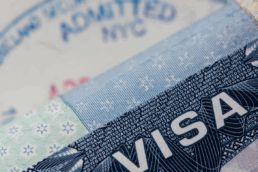In 2015, the Obama administration created regulations extending eligibility for work authorization to H-4 dependent spouses. Currently, H-4 spouses are permitted to apply for employment authorization only if their H-1B spouse is (1) the principal beneficiary of an approved Form I-140, or (2) has been granted H-1B status under the American Competitiveness in the Twenty-First Century Act of 2000 (AC21). These regulations provide much needed income for families that struggle to support themselves on an H-1B beneficiary’s salary alone.
However, with the Trump administration previously announcing plans to unravel the program, many have been left anxious as the Department of Homeland Security (DHS) works to issue new rules that could potentially remove the Obama-era regulations from the law and eliminate H-4 EADs all together.
It was initially expected that DHS would issue a notice of proposed rulemaking in February 2018. DHS planned to remove from its regulations certain H-4 spouses of H-1B nonimmigrants as a class of aliens eligible for employment authorization, but those plans have been put on hold. United States Citizenship and Immigration Services (USCIS) re-evaluated the rule and determined that significant revisions to the draft proposal were necessary. Those revisions required a new economic analysis, which would take an additional several weeks to perform. USCIS recognizes that rescinding this policy could potentially have a major economic impact. Without this needed financial support, many H-1B visa holders could be forced to leave the U.S., and for companies that rely on H-1B visas to fill critical positions, this could be troublesome. As a result of these concerns, DHS has indicated that more time is needed. It now plans to issue a proposed rule by June 2018.
Keep in mind, eliminating EADs for H-4 spouses is not going to be easy, and even if a proposed rule is eventually issued, it will not go into effect right away. It will still need to survive the remainder of the formal rule making process, which could potentially take several months at the least.
Berardi Immigration Law will continue to closely monitor this. Be sure to subscribe to our blog for more updates!
Ready to have Berardi on your side?
Whether you’re a business looking to hire or a professional hoping to relocate, immigration law can be complicated. But you don’t have to do it alone. Put our experience to work for you.



